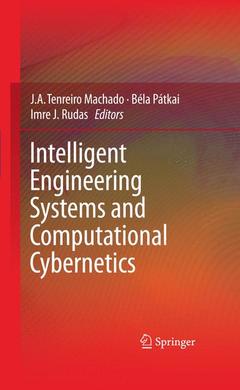Intelligent Engineering Systems and Computational Cybernetics, Softcover reprint of hardcover 1st ed. 2009

Engineering practice often has to deal with complex systems of multiple variable and multiple parameter models almost always with strong non-linear coupling. The conventional analytical techniques-based approaches for describing and predicting the behaviour of such systems in many cases are doomed to failure from the outset, even in the phase of the construction of a more or less appropriate mathematical model. These approaches normally are too categorical in the sense that in the name of ?modelling accuracy? they try to describe all the structural details of the real physical system to be modelled. This can significantly increase the intricacy of the model and may result in a enormous computational burden without achieving considerable improvement of the solution. The best paradigm exemplifying this situation may be the classic perturbation theory: the less significant the achievable correction, the more work has to be invested to obtain it.
A further important component of machine intelligence is a kind of ?structural uniformity? giving room and possibility to model arbitrary particular details a priori not specified and unknown. This idea is similar to the ready-to-wear industry, which introduced products, which can be slightly modified later on in contrast to tailor-made creations aiming at maximum accuracy from the beginning. These subsequent corrections can be carried out by machines automatically. This ?learning ability? is a key element of machine intelligence.
The past decade confirmed that the view of typical components of the present soft computing as fuzzy logic, neural computing, evolutionary computation and probabilistic reasoning are of complementary nature and that the best results can be applied by their combined application.
Today, the two complementary branches of Machine Intelligence, that is, Artificial Intelligence and Computational Intelligence serve as the basis of Intelligent Engineering Systems. Thehuge number of scientific results published in Journal and conference proceedings worldwide substantiates this statement. The present book contains several articles taking different viewpoints in the field of intelligent systems.
Date de parution : 11-2010
Ouvrage de 460 p.
15.5x23.5 cm
Date de parution : 02-2009
Ouvrage de 460 p.
15.5x23.5 cm



